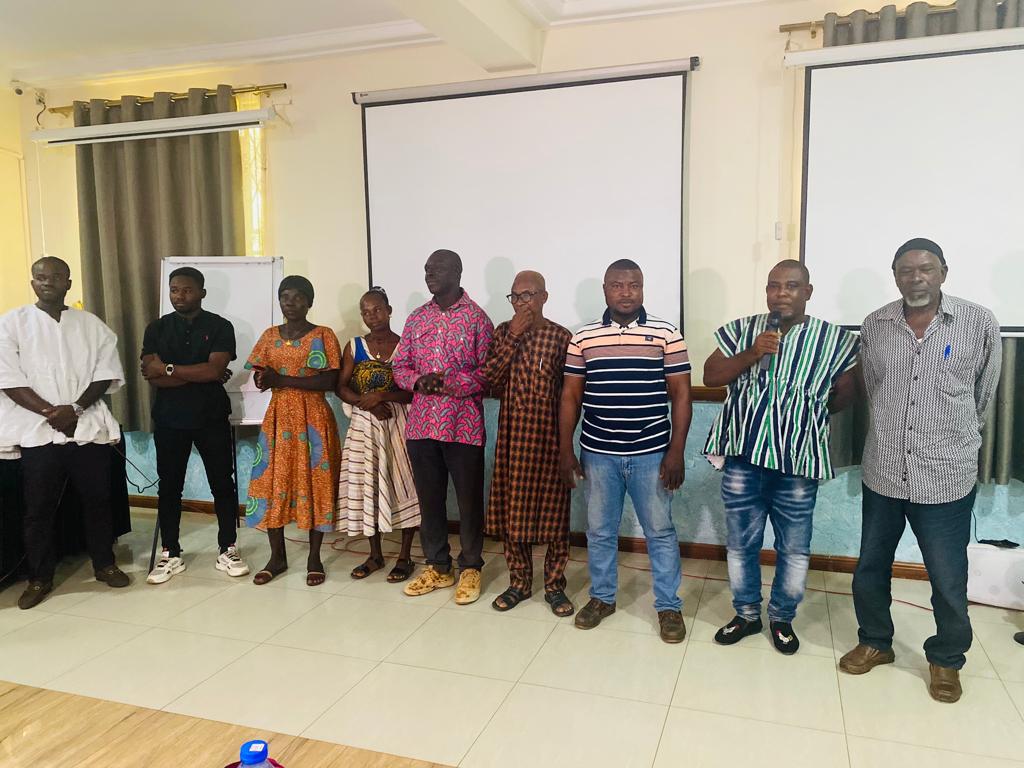The Soya Value Chain Association of Ghana has begun an advocacy programme to address some challenges confronting the soya bean industry.
This is as a result of complaints gathered from suppliers of soya bean on the invasion of the sector by foreigners although there is a ban on exports in the industry.
An aggregator, Sualihu Basiru Mohammed indicated that although there is a ban, foreigners keep breaking the value chain, and purchasing directly from the farm gates.
“In every economy, you’ll need foreign exchange, we have foreigners who are interested in our product, it’s a very good thing, but in other countries, what they do is any commodity that you need, you have to go through a chain. But here, we have foreigners that have infiltrated our market, they are going to the farm gates to compete with our local people and that is very challenging and worrying,” he said.
The Soya Value Chain Association of Ghana thus begun an advocacy programme, named “The Soya Bean Round Table” across the country to counter this challenge.
The Soya Bean Round Table was based on the theme “Strengthening Partnership for Growth and Sustainability”. In a bid to ensure that the advocacy programme is properly understood by value chain actors, the association inaugurated regional value chain committees.

In an interview with Joy Business, the Executive Secretary for the Association, Yaw Afrifa indicated that the programme is aimed at improving communication between government and stakeholders in the industry.
“One big issue was, as a value chain association we realised that there is a communication gap between government and the sector. So, we put together this stakeholder meeting to address the challenges in the sector. One of the challenges being that we do not need a ban hence we have put together a position paper listing about seven things we need changed along the value chain.”
“This position paper highlights the opinions of the grassroots hence we visited industry players in Tamale and Wa. We’re hoping that the recommendations made will be considered,” he added.
Acting Northern Regional Director for the Ministry of Food and Agriculture, Hawa Musah added that the solution to address the invasion of foreigners in the sector is to implement a standard pricing scheme.
“I’ll advise that the government should do what it can to mitigate the exportation or illegal smuggling of our food from the country and government can do that by offering fair prices to our farmers,” she said.
Considering that there is no proper regulation of the sector nor a permanent ban but just an export restriction since 7th October 2002 on the soya sector, the association at the end of the round table put together a position paper to be presented to government on policy formulation for the sector.
The position paper suggested that government should increase efforts to develop a national strategy to make soya beans a cash crop so as to be able to acquire syndicated loans to support the development of the value chain and also, soya bean chain actors should be consulted and given opportunity to serve on any committee constituted to oversee improvement of soya value chain activities in Ghana.
Government is also advised to replicate and expand the SAPIP project to increase soya bean production in Ghana, revise the leadership of public institutions like Ghana Commodities Exchange, Buffer Stock Company and the incoming Commodities Export Control Authority to give value chain actors control to lead these committees for effective operations on the ground.
They also urged the government to increase financial support to domestic actors for the production and processing of soybeans and replicate best practices from development institutions such as SAPI, MOAP NW for soybean producers.





